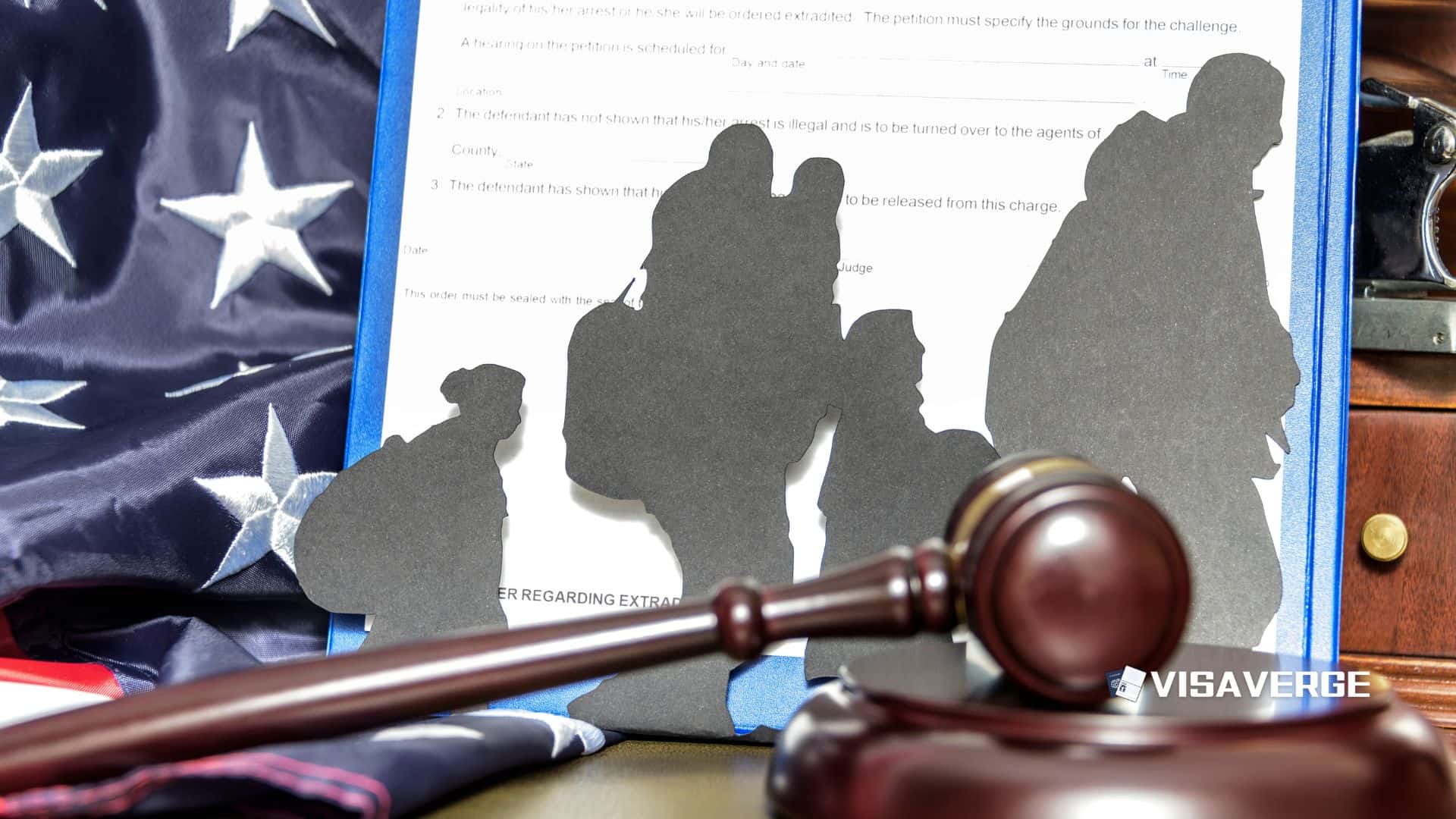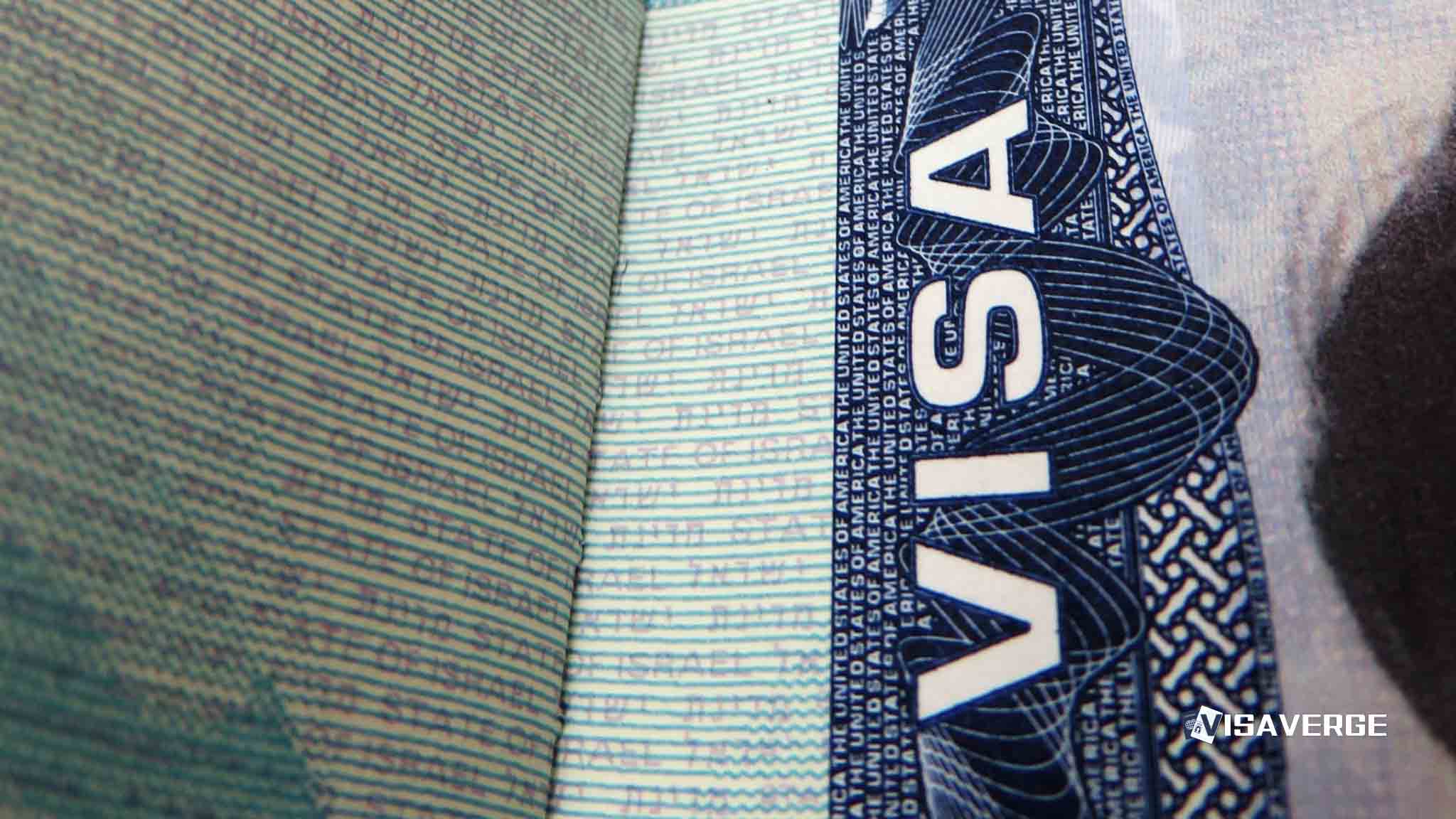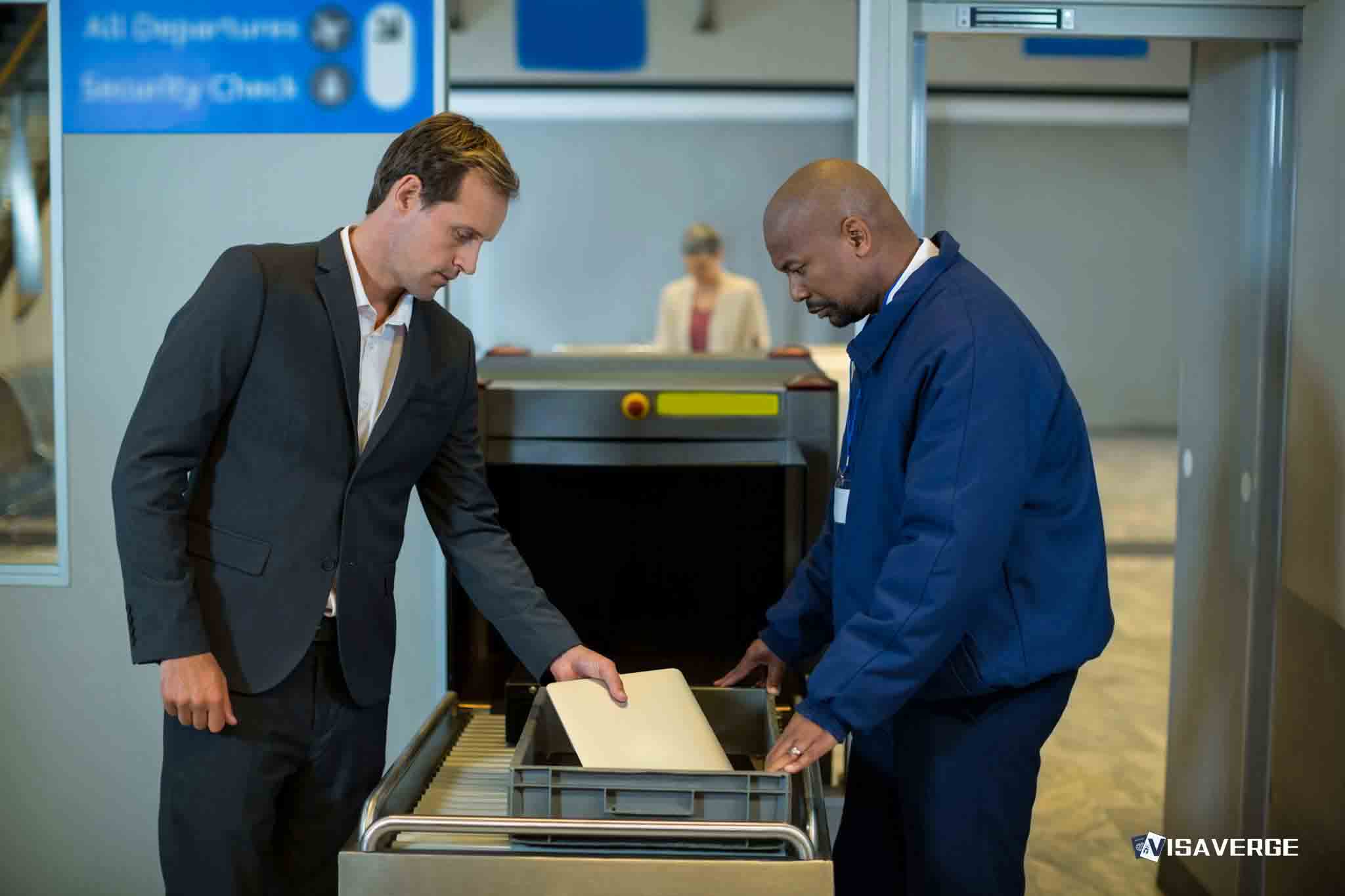Key Takeaways
• Germany’s spousal visa requires basic A1 German language, typically proven with a Goethe-Institute certificate before applying.
• Certain nationalities and spouse occupations are exempt from language requirements, making application easier for specific groups.
• Processing times for spousal visas increased in 2024 due to stricter enforcement of the language requirement and missing certificates.
Germany’s spousal visa helps married couples who want to live together in Germany 🇩🇪. This visa allows spouses from outside the country to join their partners already living or working there. However, as reported by VisaVerge.com, many find the strict language requirements a challenge. German authorities want people who come to live in the country to know some basic German. This helps newcomers communicate, live independently, and adjust to life in Germany 🇩🇪. In recent years, language requirements have become one of the biggest hurdles for spousal visa applicants.
Let’s examine what these language requirements are, how they affect applicants, who is exempt, and what the overall process looks like. We’ll also see the pros and cons and answer common questions.

Eligibility Requirements
You may qualify for a Germany 🇩🇪 spousal visa if all these conditions are met:
- You are legally married to a person living in Germany 🇩🇪. The marriage must be legally recognized.
- Your spouse already lives in Germany 🇩🇪 with a legal residence status (for example, a citizen, permanent resident, or holding a valid work visa).
- You both plan to live together in Germany 🇩🇪.
- You can show basic knowledge of the German language as required by the law, unless you belong to an exempt group.
The main hurdle for many is the German language requirement. According to the German Immigration Act, spouses must prove they have at least a basic knowledge of German before moving to Germany 🇩🇪. This is checked when applying for the visa at a German embassy or consulate.
Who Cannot Apply: If you are only engaged or in a relationship (not married or in a civil partnership), you cannot use the spousal visa.
Purpose and Benefits of the Spousal Visa
The spousal visa exists to help families live together in Germany 🇩🇪. Its benefits include:
- Family Reunification: It allows spouses to join their partners and build a life together.
- Long-Term Stay: Unlike a tourist visa, it is designed for permanent residence, not short visits.
- Work and Study Rights: After arriving, the spouse usually can work or study in Germany 🇩🇪, depending on the sponsor’s residence status.
- Access to Services: Holders can access education, healthcare, and other public services.
The Language Requirements
Legal Background: The main requirement was set by the German Immigration Act effective from August 28, 2007.
What Is Required? Spousal visa applicants must show they know German at a basic (A1) level according to the Common European Framework of Reference for Languages (CEFR).
- A1 Level Skills: At A1 level, a person can understand and use very simple German expressions and sentences. They can introduce themselves, ask and answer simple questions, and interact in a simple way if the other person speaks slowly and clearly.
- Why This Level? German authorities say even basic skills help newcomers adjust more quickly. This reduces dependence on their spouse and makes daily life and integration easier.
Proof of Language:
Applicants must present a certificate from an accepted institution. Currently, only language certificates from the Goethe-Institute are recognized for the spousal visa. The Goethe-Institute is an official German cultural institution operating around the world. Certificates from other schools or online providers are not accepted.
How Is the Exam Done?
The Goethe-Institute’s A1 exam checks speaking, listening, reading, and writing. You must pass all sections to get the certificate.
Why Do So Many Struggle?
Even A1 might sound simple, but many find it hard if they come from countries with different language roots, have low education, or limited access to language classes. Some cannot easily reach a Goethe-Institute or pay exam fees.
Exceptions to the Language Requirements
Not everyone must prove German language skills. The law provides several exceptions:
Nationality-Based Exceptions
- Spouses who are citizens of an EU country.
- Spouses of German nationals who have used their EU free movement rights.
- Spouses of citizens from these countries: Australia 🇦🇺, Israel 🇮🇱, Japan 🇯🇵, Canada 🇨🇦, Republic of Korea 🇰🇷, New Zealand 🇳🇿, United Kingdom 🇬🇧, United States 🇺🇸, Andorra, Brazil 🇧🇷, El Salvador 🇸🇻, Honduras 🇭🇳, Monaco, or San Marino.
People from these countries can apply for a spousal visa without proving they speak German, thanks to Germany’s international agreements and laws.
Residence Status Exceptions
If your spouse in Germany 🇩🇪 has one of these residence permits, you are exempt from the language test:
- Highly skilled workers (Section 19 of the German Residence Act).
- Researchers (Section 20).
- Company founders (Section 21).
- EU Blue Card holders (which targets talented professionals from outside the EU).
- Recognized refugees or asylum seekers.
Under these rules, Germany 🇩🇪 tries to attract skilled talent. Authorities assume people in these jobs already know enough German or can learn it quickly after arrival.
Other Exceptions
A few more situations result in exemptions:
- Language Learning Not Possible: If it is impossible, unreasonable, or unsuccessful to learn German abroad after at least one year of effort, usually because of lack of courses, family care obligations, or living in a conflict zone. This exception applies if you want to join a German spouse.
- Illness or Disability: Physical or mental health conditions that make language learning impossible.
- Graduates Seeking Work: Foreign university graduates expected to find work in Germany 🇩🇪 based on their existing qualifications.
- Temporary Stays: If the spouse does not plan to live in Germany 🇩🇪 permanently, such as for a limited work assignment.
Step-by-Step Application Process
- Collect Information: Check if you or your spouse qualify for any exception to the language rule. Confirm your marriage is legally recognized.
- Language Certificate: Prepare for and pass the German A1 exam at your local Goethe-Institute, unless you fall under an exception.
- Book an Appointment: Contact the nearest German embassy or consulate and book a visa interview.
- Fill the Application: Download and fill out the family reunion visa application form (if available, use the official website for the application).
- Prepare Documents: Gather all required paperwork.
- Visa Interview: Attend the interview at the embassy or consulate, bringing your documents and the language certificate if needed.
- Processing: Wait for a decision after the interview. German authorities will process your application, review your language certificate, and may contact you or your spouse for more details if needed.
- Receive Visa: If approved, you receive your visa sticker in your passport, allowing you to travel to Germany 🇩🇪.
- Register in Germany 🇩🇪: Once in the country, register with the local registration office.
Required Documents and Evidence
You must prepare and present:
- A valid passport.
- Marriage certificate (must be officially translated and often apostilled/legalized).
- Evidence your spouse is legally in Germany 🇩🇪 (copy of their residence permit or ID card).
- Proof of accommodation in Germany 🇩🇪.
- Health insurance coverage valid in Germany 🇩🇪.
- Proof of financial means (can your spouse support both of you?).
- German A1 language certificate from the Goethe-Institute (unless exempt).
- Completed visa application form.
The embassy or consulate will list more documents in special situations, such as if you were previously married or if you plan to bring children. It is a good idea to check directly with the embassy or visit the Federal Office for Migration and Refugees for the latest list.
Processing Times and Fees
The total time to get the spousal visa can range from a few weeks to several months, depending on the embassy’s workload, how busy they are, and the complexity of your case. In 2024, processing is slower in many places because of more applications and issues with missing documents, especially language certificates.
- Fees: The visa fee is normally about 75 EUR per adult. There may be extra charges for translation, certifications, and shipping documents between offices.
Validity Period and Renewal
Once issued, the spousal visa usually allows you to enter Germany 🇩🇪 and get a residence permit. The initial permit is often valid for one year or two. It can be renewed as long as your marriage continues, your spouse stays in Germany 🇩🇩, and you both meet the rules.
After living together in Germany 🇩🇩 for a few years (usually three), you may apply to upgrade to long-term or permanent residency if you still meet all requirements.
Rights and Restrictions
Rights:
– Live with your spouse in Germany 🇩🇪.
– Work or study, depending on your spouse’s residence status.
– Use public services, including healthcare and education.
– Travel in the Schengen Area for short stays.
Restrictions:
– Must maintain a real marriage and family life.
– Cannot switch to a different visa type immediately for unrelated reasons.
– The right to work may depend on your spouse’s residence status (for example, if your spouse is in Germany 🇩🇪 for study, your work rights may be limited).
Pathways to Permanent Residency
After three years of marriage and living together in Germany 🇩🇩, many spouses can apply for a permanent residence permit. You should:
- Still be married and living together.
- Show continued German language skills (often now B1 level).
- Prove financial independence.
- Have no major legal trouble.
After several more years (usually eight), some may even apply for German citizenship.
Comparison with Similar Visa Types
Spousal Visa vs. Fiancé(e) Visa:
Germany 🇩🇪 does not have a special visa for engaged couples (fiancé(e)s). Spousal visas are only for legally married couples or registered partners. Other countries may offer special fiancé(e) visas, but not Germany 🇩🇪.
Spousal Visa vs. Dependent Visa:
A dependent visa may be used for children or other family members. Spousal visas are specifically for a husband or wife (or registered partner).
Spousal Visa vs. Student/Work Visa:
Student or work visas are for people coming to Germany 🇩🇩 to study or work and are not tied to family status.
This means the spousal visa, with its language requirements, is different in several ways from other pathways.
Common Misconceptions or Frequently Asked Questions
Do I need perfect German?
No. Only basic (A1 level) German is needed unless you want to take another route to stay long-term, which might need higher levels.
Can I use an online German course certificate?
No. Only in-person or approved testing at the Goethe-Institute counts for spousal visa applications.
Can we live apart after I move to Germany 🇩🇩?
No. You must live together as a couple or your visa/residence permit may be canceled.
If I’m exempt once, do I stay exempt forever?
Exemptions only apply for the spousal visa entry. For permanent residency or citizenship, you might need higher language levels.
Real-World Examples
- Abdul and Leyla: Abdul, from Turkey 🇹🇷, spent over a year learning German and still failed the exam. Because he comes from a small town with no Goethe-Institute, he faced long commutes and high costs. After proving his repeated efforts, he was eventually granted an exception.
- Maria and Alex: Maria, from Brazil 🇧🇷, married Alex, a German engineer. Maria passed her A1 test at the local Goethe-Institute. Her application was processed quickly, as both had good documents.
- Tom and Michael: Tom, from the United States 🇺🇸, married Michael, a German doctor. Tom was exempt from the language test because of his US citizenship.
Recent Changes or Updates
In 2024, German embassies and consulates issued fewer spousal visas than in 2023. A main reason was many applicants could not meet the language certificate requirement, highlighting its importance and the challenges some face.
Pros and Cons of the Spousal Visa
Pros:
– Allows families to live together.
– Brings access to work, study, and services in Germany 🇩🇪.
– Possible path to permanent residency and even citizenship.
Cons:
– Strict language requirements can be very hard for some.
– The process can be slow and expensive.
– Limited exceptions mean many must try the language exam, even in tough conditions.
Conclusion and Additional Resources
Germany’s spousal visa, with its strong focus on language requirements, supports integration and family unity but sets a challenge for many couples. The best approach is to prepare early for the A1 German test, check for any possible exemptions, and gather documents with care. For the latest details, forms, and official advice, see the Federal Office for Migration and Refugees or visit a local Goethe-Institute. Being well-prepared helps couples reunite as soon as possible, while meeting Germany 🇩🇪’s rules and expectations.
Learn Today
Goethe-Institute → An official German cultural institution recognized globally, issues valid German language certificates for the spousal visa.
A1 Level → The most basic level on the CEFR scale, requires simple conversation skills and basic German comprehension.
Spousal Visa → A residence visa for spouses of people legally living in Germany to join and reside together in the country.
CEFR → Common European Framework of Reference for Languages, a system for measuring language proficiency including levels like A1.
Permanent Residency → A legal status allowing someone to live and work in Germany without time limits after specific conditions are met.
This Article in a Nutshell
Germany’s spousal visa lets couples reunite, but strict A1 German language requirements are a key obstacle. Only certificates from the Goethe-Institute are accepted. Some nationalities and skilled professionals are exempt. Early language preparation and document gathering are vital for successful, timely applications and reuniting with loved ones in Germany.
— By VisaVerge.com
Read more:
• Spousal Sponsorship: Step-by-Step Guide for Canadian PR
• Sample COVER Letters for UK Spousal Visa Application
• Change of Status: USA Tourist Visa to Spousal Guide
• Spousal Sponsorship in Canada: Family Reunification & Open Work Permits
• SCOTUS Ruling on Spousal Visa Denials













